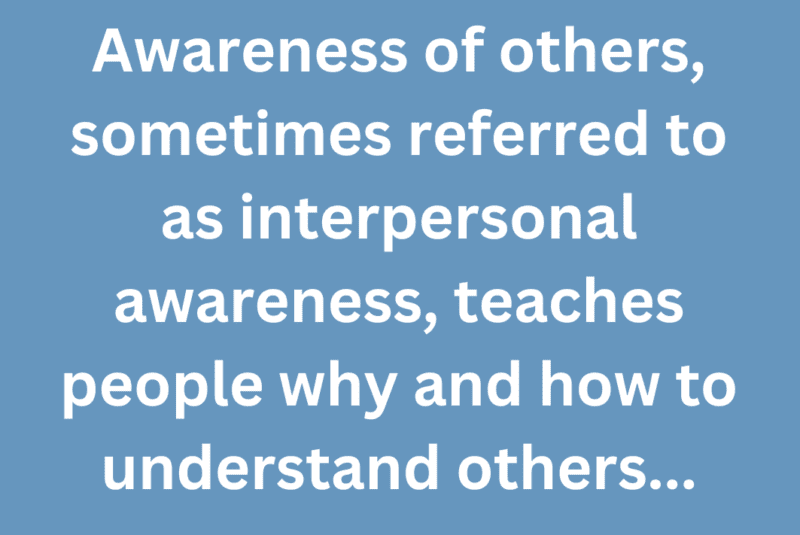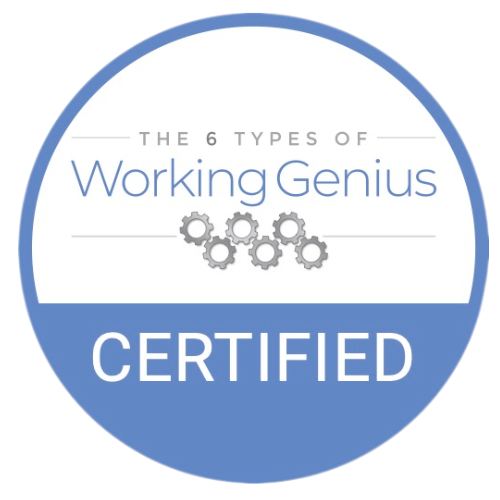Jeff is also anxious to close his current sales opportunity, but he knows that his customers have to be in a good place before they’ll sign the contract. Jeff observes their body language, and the way they react to his key sales points. Jeff senses that his clients need more convincing, but not by amping up the sales pitch. Instead, Jeff relies on his human-centric approach to sales and works to gain the confidence and trust of the prospect by slowing down and asking questions to ensure he’s understanding their thoughts and feelings about the deal. He’s expressing a willingness to go back to the needs discovery process in case he missed a crucial point about what they are looking for. All along the way, Jeff is mindful of their emotional state. The customer expresses gratitude for Jeff’s thoughtful and sensitive approach and says they’ll be meeting soon internally to talk things over and they assure Jeff they’ll give him an answer before too long. Jeff sincerely thanks them and closes the meeting. Within one week the sale closes, and soon Jeff is writing more contracts with this customer and establishing a long-term relationship.
Once again we find Bob and Jeff in similar situations, but with very different results. Why is that? 
In the first post of this series we talked about self-awareness as a foundation of emotional intelligence for sales professionals. Now let’s look at the direct counterpart to self-awareness: Awareness of Others. This is another important skill that’s integral to an emotionally intelligent sales approach.
What It Is
Awareness of others, sometimes referred to as interpersonal awareness, teaches people why and how to understand others, and it’s a cornerstone of all forms of successful interpersonal communication and interaction. Empathy, defined as “the ability to understand and share the feelings of another” plays a huge role in developing this awareness. Colloquially called “putting yourself in the other person’s shoes,” this skill is critical for a leader to be more effective, for employees and salespeople to be more successful, and for everyone to be more socially aware at home and at work.
Two Key Elements of Awareness of Others
Awareness of Others is described in several ways, and here are two of them:
- Accurately viewing situations from others’ perspectives
- Recognizing others’ non-verbal cues
We’ve already mentioned the importance of empathy in this process, and indeed there’s nothing more important than attempting to understand another person’s perspective or point of view. When you are able to do this in a clear and unbiased way, you open the door to truly understanding why another person acts as they do, and that knowledge can be applied to strengthen and smooth out the sales process, not to mention building trust and confidence. Think of the sale from the customer’s point of view and you’re more likely to close that deal.
Non-verbal clues, also called body language, take the form of subtle and not so subtle actions that can say much more than words alone. These non-verbal communication modes can give you deep insight into a person’s emotions and moods. Picking up on them requires close observation, and while this requires extra effort on your part, it can go a long way toward building your awareness of others.
If you practice these principles in your dealings with everyone: customers, prospects, coworkers, colleagues, friends and family, you’ll make significant strides towards developing your emotional intelligence.
Here are some tips to help you become more empathetic and socially aware, and ultimately, a better salesperson.
 6 Ways to Improve Your Awareness of Others
6 Ways to Improve Your Awareness of Others
- Listen More and Listen Better
Good listeners don’t assume they know or understand a situation before hearing someone out. They listen, look for the facts of the situation and then analyze the emotions surrounding it. When you really start listening, you may be surprised by what you learn about your customers and prospects – and how you can help advance the sales process with the new information you capture. One key here is to not think of your response while the other person is still talking. Just focus on what they are saying and seek to go deeper into their message. What’s the feeling behind their words? What’s being left unsaid? What do you need more information on? Just focus on what they are saying, and not your response.
- Repeat What Was Said
The best way to ensure you understand what’s been said is to repeat back what you heard in your own words and then ask for more information, if appropriate. This not only helps to show that you understood what was said, but it conveys to the other person that their opinion is valued and heard.
- Pay Close Attention to Tone of Voice
The way something is said can say a lot more than the words alone. A person’s tone of voice can help you get a read on how they’re feeling, and give you a better opportunity to choose the most appropriate response or course of action. Good listeners also listen for tone of voice.
- Read the Room
When you walk into a customer’s or a prospect’s workplace, what vibe do you pick up on? Is there a palpable energy in the air? Do people seem enthusiastic or blase? Is it an open workplace that values collaboration? Is it neat and tidy or relaxed and a little cluttered? Such observation skills are fundamental to developing your sense of social awareness. When you pay close attention to what’s happening around you, the awareness of your surroundings can help set the tone of how you approach the sales situation.
- Observe and Respect “Zone Time”
When a sales prospect is deeply in their zone working on another problem or issue, your sales pitch will likely be seen as an unwelcome interruption. Maybe they’re preparing for a major event, or working to solve a problem under a very tight deadline. Be aware and attuned to these circumstances and respect them prior to initiating a sales meeting. The prospect will appreciate your understanding of their situation and when the time is right for a meeting they’ll be ever more receptive. 
- Give People Your Undivided Attention
A firm handshake, eye contact, and silencing your mobile phone are all reassuring signs that you want to engage with your customer or prospect in a meaningful way and that you’re aware of their need to be heard and understood. This is not only courteous, it’s a smart indication of how emotionally intelligent you are. If it’s a video meeting, then turn off email on your computer so it won’t distract you and silence your phone. Try to look at the camera versus the prospect so they feel as if you are looking at them directly and smile often.
A Skill for Life
Awareness, of yourself and of others, is a key life skill that you can apply throughout your professional and personal life to the benefit of all concerned. Not only will prospects appreciate you more because of your awareness of them as unique individuals, they’ll buy more from you too.
Use this skill to get into the heads of your prospects and customers and adjust your approach accordingly. That’s the key application of this EI competency. When you can learn to adapt to meet the needs of the other person based on your sense of what they are thinking and feeling, you’ll be miles ahead of your competition who’s too self-absorbed and focused on their own goals.
If you would like to learn how to incorporate more emotional intelligence into your sales process, consider working with us.
Here are more resources related to this topic:
Articles
- Self-Awareness: The First Step to Emotional Intelligence for Sales Professionals
- Strategies for Boosting your Self-Awareness to become a More Effective Leader
- Cultivating Awareness of Others as a Business Leader
- Self-Awareness: A Foundation of Leadership Success
- Emotional Reasoning for Sales Professionals
- The Value of Authenticity in the Sales Process
Case Study
Videos
- 3 Ideas to Help You Sell Your Coaching Services
- 3 Ways to Coach Without Doing Sales or Marketing
- Cultivating the Awareness of Others As A Business Leader
- Two Forces in Coaching That You Need to be Aware of!
Photo copyright: Featured photo is from ©Alexander Suhorucov via Pexels. Secondary photo is from ©RDNE Stock project via Pexels.




















